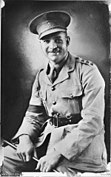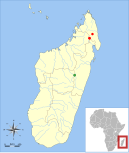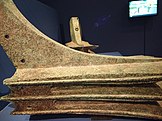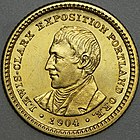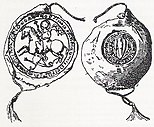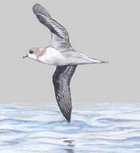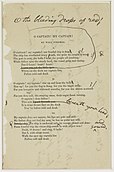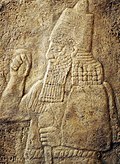Wikipedia:Today's featured article/March 2021
| << | Today's featured articles for March 2021 | >> | ||||
|---|---|---|---|---|---|---|
| Su | Mo | Tu | We | Th | Fr | Sa |
| 1 | 2 | 3 | 4 | 5 | 6 | |
| 7 | 8 | 9 | 10 | 11 | 12 | 13 |
| 14 | 15 | 16 | 17 | 18 | 19 | 20 |
| 21 | 22 | 23 | 24 | 25 | 26 | 27 |
| 28 | 29 | 30 | 31 | |||
March 1
Interstate 70 passes through Colorado on its route between its western terminus at Cove Fort, Utah, and its eastern at Baltimore, Maryland. In western Colorado, the highway connects the metropolitan areas of Grand Junction and Denver via a route through the Rocky Mountains. Bicycles are allowed on those stretches of I-70 in the Rockies where no other through route exists. The United States Department of Transportation (USDOT) lists the construction of I-70 among the engineering marvels undertaken in the Interstate Highway system. The Eisenhower Tunnel, with a maximum elevation of 11,158 feet (3,401 m) and length of 1.7 miles (2.7 km), is the longest mountain tunnel and highest point along the Interstate Highway System. The portion through Glenwood Canyon was completed on October 14, 1992, one of the final pieces of the Interstate Highway System to open to traffic, and one of the most expensive rural highways per mile built in the United States. (Full article...)
March 2
Lionel Matthews (15 August 1912 – 2 March 1944) was an Australian Army officer during World War II who was posthumously awarded the George Cross, the highest non-combat award for heroism for members of the Australian armed forces at the time. Matthews served in the 27th Brigade during the Malayan campaign, and at the surrender of Singapore in 1942 became a prisoner of war (POW). He was awarded the Military Cross for courage, energy and ability under fire during this fighting. At Sandakan POW camp Matthews established an intelligence network, collecting information, weapons, medical supplies and radio parts, and making contact with organisations outside the camp. The group was betrayed, and Matthews was arrested, beaten, tortured and starved. He refused to provide any information, and was executed by firing squad. After the war he was awarded the George Cross in recognition of his gallant and distinguished services while in Japanese hands. (Full article...)
March 3
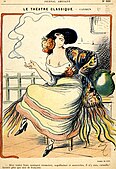
Carmen is an opera in four acts which Georges Bizet set to a libretto by the team of Henri Meilhac and Ludovic Halévy, based on Prosper Mérimée's novella. When it was first performed by the Opéra-Comique in Paris on 3 March 1875, its breaking of conventions shocked and scandalized its first audiences. The opera was originally written with musical numbers and spoken dialogue. Set in southern Spain, it tells of the downfall of Don José, a naïve soldier who is seduced by the fiery gypsy Carmen, and finally kills her in a jealous rage. The depictions of proletarian life, immorality, and lawlessness broke new ground in French opera. Bizet died suddenly after the 33rd performance, unaware that the work would achieve international acclaim within the following ten years. Carmen has become one of the most frequently performed operas, with the "Habanera" and the "Toreador Song" among the best known of all operatic arias. The music has been acclaimed for its brilliance of melody, harmony, atmosphere and orchestration, and for Bizet's skill in expressing the emotions and suffering of his characters. (Full article...)
March 4
Warren G. Harding (1865–1923) was the 29th president of the United States, serving from March 4, 1921, until his death in 1923. A member of the Republican Party, Harding was defeated for Governor of Ohio in 1910, but was elected to the Senate in 1914. He ran for the Republican nomination for president in 1920. Considered a long shot until after the convention began, he was nominated on the tenth ballot. He conducted a front porch campaign, running on the theme of a return to normalcy, and won in a landslide, the first sitting senator to be elected president. He appointed a number of well-regarded figures to his cabinet, including Andrew Mellon at the Treasury Department, Herbert Hoover at Commerce, and Charles Evans Hughes at State. After his death in San Francisco, a number of scandals, including Teapot Dome, came to light, as did his extramarital affair with Nan Britton, eroding his popular regard. Harding was succeeded by Vice President Calvin Coolidge. (Full article...)
March 5
The Riegelmann Boardwalk (also known as the Coney Island Boardwalk) is a 2.7-mile-long (4.3 km) boardwalk along the southern shore of the Coney Island peninsula in the New York City borough of Brooklyn, adjacent to the Atlantic Ocean. Opened in 1923, it has become an icon of Coney Island, with appearances in the visual arts, music, and film. The boardwalk has been considered the most important public works project in Brooklyn since the Brooklyn Bridge, with an impact comparable to Central Park. By the mid-19th century, the Coney Island waterfront was divided by owners who erected barriers. First discussed in the late 1890s as a means of uniting the different sections of Coney Island, the boardwalk was designed by Philip P. Farley, and named for Brooklyn borough president Edward J. Riegelmann, who championed its construction. Its first portion opened in 1923, and it connects sites such as the New York Aquarium, Luna Park and MCU Park. (Full article...)
March 6
The northern voalavo (Voalavo gymnocaudus) is a rodent found in the highlands of northern Madagascar first discovered in 1994. It is the type species of the genus Voalavo, and its closest relative is the eastern voalavo of the Central Highlands. It is found at 1,250 to 1,950 m (4,100 to 6,400 ft) above sea level in montane wet and dry forests in the northern massifs. It is nocturnal, solitary and terrestrial, but it can climb and probably eats plant matter. Despite having a small range, the species is classified as being of least concern because it lacks obvious threats and lives mainly in protected areas. It is a small, mouse-like rodent with soft, gray fur, only slightly darker above than below. The ears are short and rounded. The long tail appears mostly naked and lacks a distinct tuft. The skull is delicate, with a long, narrow front part, narrow space between the eyes, and no development of ridges on the braincase. The molars are relatively high-crowned. It has a body mass of 17 to 25.5 g (0.60 to 0.90 oz). (This article is part of a featured topic: Voalavo.)
March 7

The Grand Budapest Hotel is a 2014 comedy-drama film written and directed by Wes Anderson. Ralph Fiennes leads a seventeen-actor ensemble cast as Monsieur Gustave H., renowned concierge of a fictional European mountainside resort. When Gustave is framed for the murder of a wealthy dowager (Tilda Swinton), he embarks on a quest for fortune and a priceless Renaissance painting with his recently befriended lobby boy (Tony Revolori). Thematic analysis focuses on the function of color as a storytelling device and the film's exploration of fascism, nostalgia, friendship, and loyalty. The Grand Budapest Hotel was based on Anderson and longtime collaborator Hugo Guinness's vision of a fragmented tale of a character inspired by a mutual friend. Filming took place in Germany over ten weeks, in the regions around Berlin and Saxony. After premiering at the Berlin International Film Festival in February 2014, the film grossed more than $172 million at the global box office. The Grand Budapest Hotel was released to highly positive reviews, and won four Academy Awards for music and technical achievement. (Full article...)
March 8
The women's poll tax repeal movement in the United States was the attempt, predominantly led by women, to secure the abolition of poll taxes as a prerequisite for voting in the Southern states. After women were granted the right to vote in 1920, some Southern states introduced or expanded poll tax statutes in order to disenfranchise them. In response, women began organizing to repeal these laws (poster pictured), initially to little effect. During the Great Depression of the 1930s, both black and white women pressed at state and national levels for the abolition of these laws, and also filed lawsuits. Louisiana abandoned its poll tax law in 1932, and the number of women voters increased by 77 percent. Florida, Tennessee and Arkansas followed. In 1964, the Twenty-fourth Amendment was passed, prohibiting poll taxes as a barrier to voting in federal elections. The Supreme Court finally ended the struggle after four decades in its ruling on Harper v. Virginia State Board of Elections in 1966. (Full article...)
March 9
Paper Mario: The Origami King is a cross-genre video game, developed by Intelligent Systems and published by Nintendo; it was released exclusively for the Nintendo Switch console in July 2020. The story follows Mario teaming up with his new ally Olivia to prevent the Mushroom Kingdom from being folded entirely into origami. The game is designed to look entirely like paper, with multiple open-world areas allowing for exploration and puzzle-solving. Turn-based combat is organized into circular rings, which can be rotated to line up enemies to deal more damage. The producer, Kensuke Tanabe (pictured), anticipating that he could not satisfy every fan, opted for entirely new gameplay and concepts compared to previous games in the series. The game received generally positive reviews, being praised for its graphics, writing and characters, and critiqued for the lack of other elements of role-playing games, such as experience points. Reception on gameplay, mainly the puzzle-style combat, was mixed. (Full article...)
March 10
The Battle of the Aegates was a naval battle fought on 10 March 241 BC between the fleets of Carthage and Rome. It took place among the Aegates Islands, off the western coast of Sicily. The Carthaginians were commanded by Hanno, and the Romans were under the overall authority of Gaius Lutatius Catulus, but Quintus Valerius Falto had the battle command. It was the final battle of the 23-year-long First Punic War. The Roman army had been blockading the Carthaginians in their strongholds on the west coast of Sicily. Almost bankrupt, the Romans borrowed money to build a fleet, with which they extended the blockade to the sea. The Carthaginians assembled a larger fleet to run supplies into Sicily. It was intercepted and in a hard-fought battle the better-trained Romans defeated the undermanned and ill-trained Carthaginians. As a direct result, Carthage sued for peace and agreed to the Treaty of Lutatius, surrendering Sicily to Rome and paying substantial reparations. (Full article...)
March 11
Typhoon Maemi was the most powerful typhoon to strike South Korea since records began in 1904. Maemi formed on September 4, 2003 in the western Pacific and became a typhoon on September 8. Passing over the Japanese island of Miyako-jima on September 10, it left 95 percent of residents without power and caused 58.5 mm (2.30 in) of rainfall in an hour and 402.5 mm (15.85 in) in 24 hours. Maintaining much of its intensity, it made landfall west of Busan, South Korea, on September 12, where winds reached 154 km/h (96 mph). The port sustained heavy damage, restricting exports for months. On Jeju Island, it produced a peak wind gust of 216 km/h (134 mph) and a minimum pressure of 950 mbar (28 inHg), both records for the country. Nationwide, high winds destroyed about 5,000 houses and damaged 13,000 buildings, leaving 25,000 people homeless. Crop damage resulted in the poorest rice harvest in 23 years. Across South Korea, Maemi killed 117 people, and damage totaled 5.52 trillion won (US$4.8 billion). (Full article...)
March 12

Limusaurus is a genus of theropod dinosaur that lived in what is now China during the Late Jurassic, around 161 to 157 million years ago. The only species, Limusaurus inextricabilis, was described in 2009 from specimens (diagram shown) found in the Upper Shishugou Formation in the Junggar Basin. Limusaurus was a small, slender animal, about 1.7 m (5 ft 7 in) in length and 15 kg (33 lb) in weight, with a long neck and legs but small forelimbs. It underwent a drastic morphological transformation as it aged: while juveniles were toothed, the teeth were completely lost and replaced by a beak. This probably corresponded to a dietary shift from omnivory to herbivory. Since many specimens were found together, it is possible Limusaurus lived in groups. As referenced in its genus name, which means "mud lizard", specimens of Limusaurus appear to have been mired in mud pits created by the footprints of giant sauropod dinosaurs. (Full article...)
March 13
The Lewis and Clark Exposition gold dollar is a commemorative coin struck in 1904 and 1905 as part of the United States Government's participation in the Lewis and Clark Centennial Exposition. That fair was held in 1905 in Portland, Oregon, to mark the centennial of the Lewis and Clark Expedition. Designed by United States Bureau of the Mint Chief Engraver Charles E. Barber, the coin did not sell well with less than a tenth of the authorized mintage of 250,000. They were, for the most part, sold to the public by numismatic promoter Farran Zerbe, who had also vended the Louisiana Purchase Exposition gold dollar. As he was unable to sell much of the issue, surplus coins were melted by the Mint. The coins have continued to increase in value, and today are worth between hundreds and thousands of dollars, depending on condition. The Lewis and Clark Exposition dollar is the only American coin to be "two-headed", with a portrait of one of the expedition leaders on each side. (Full article...)
March 14
Nasr (1287–1322) was the son of Muhammad II al-Faqih and the fourth Nasrid ruler of the Emirate of Granada on the Iberian Peninsula. When he ascended the throne on 14 March 1309 after his brother Muhammad III was dethroned in a palace revolution, Granada faced a three-front war against Castile, Aragon and the Marinid Sultanate (map pictured). He made peace with all three over the following year with minimal losses. Despite this, Nasr was unpopular at court due to his excessive concentration on science and astronomy, and his perceived pro-Christian sympathies. A rebellion started by his brother-in-law Abu Said Faraj and nephew Ismail ended in Nasr's abdication in 1314 in favour of Ismail, now Ismail I. He was allowed to rule the eastern province of Guadix, and attempted – fruitlessly – to regain the throne with help from Castile. Nasr died without an heir in 1322. (Full article...)
March 15
The Battle of Halmyros was fought on 15 March 1311 between the Frankish Duchy of Athens and the Catalan Company (seal depicted). The Catalans were mercenaries hired by the Byzantine emperor to combat the increasing power of the Turks in Anatolia. After the Byzantines murdered the Catalan leader, Roger de Flor, the company crossed the southern Balkans and arrived in southern Greece in 1309. The new Duke of Athens, Walter of Brienne, hired them to attack Thessaly. The Catalans conquered much of the region, but Walter refused to pay them and prepared to forcibly expel them. The two armies met at Halmyros in southern Thessaly. The Catalans positioned themselves behind marshy terrain, but the Franks, confident in the prowess of their heavy cavalry, charged headlong against the Catalan line. The marsh impeded their attack, and the Frankish army was routed. Walter and almost all of his knights fell in the field, allowing the Catalans to take over the Duchy of Athens and rule it until the 1380s. (Full article...)
March 16
Zino's petrel (Pterodroma madeira) is a species of small seabird, endemic to Madeira. This gadfly petrel is grey above with a dark "W" across the wings. The wings are mainly blackish below, and the belly is white. It is very similar in appearance to Fea's petrel, both being formerly considered to be subspecies of the soft-plumaged petrel, but Zino's was raised to a species on criteria including morphology and mitochondrial DNA. Its breeding areas are a few ledges high in the mountains of Madeira, where it nests in burrows which are visited only at night. The single white egg is incubated by both adults, one sitting while the other feeds on fish and squid at sea. This species is subject to predation by introduced cats and rats, and in the past by humans. Predator control and the removal of grazing animals has enabled the population to recover although it remains listed as endangered on the IUCN Red List. There was a major setback in 2010 when fires killed three adults and 65 percent of the chicks. (Full article...)
March 17
"O Captain! My Captain!" is an extended-metaphor poem written by Walt Whitman in 1865 about the death of U.S. president Abraham Lincoln. Well received upon publication, the poem was Whitman's most popular during his lifetime. Whitman was employed by the federal government in Washington, D.C., through much of the Civil War, and, though he never met Lincoln, Whitman felt a connection to him and was greatly moved by his assassination. "My Captain" was first published in The Saturday Press on November 4, 1865, and appeared in Sequel to Drum-Taps later that year. He later included it in the collection Leaves of Grass and recited the poem at several lectures on Lincoln's death. Critical opinion has shifted since the mid-20th century, with scholars deriding its conventionality and unoriginality. In popular culture, the poem experienced renewed attention after it was featured in Dead Poets Society (1989), and is frequently associated with the star of that film, Robin Williams. (Full article...)
March 18

The Wells and Wellington affair was a dispute involving the Australian Journal of Herpetology, a scientific journal on the study of amphibians and reptiles published beginning in 1981 by the Australian Herpetologists' League. Richard Wells, a student, served as the editor-in-chief of the peer-reviewed periodical, with an editorial board of three researchers. Wells stopped communicating with his board for two years before publishing three unreviewed papers in the journal in 1983 and 1985 which he coauthored with teacher C. Ross Wellington. The papers reorganized the taxonomy of Australia's and New Zealand's amphibians and reptiles, and proposed over 700 changes to their scientific names. The herpetological community brought a case to the ICZN to suppress the new names, but the commission eventually opted not to decide, leaving some of Wells and Wellington's names available. As of 2020, 24 of their specific names remained valid senior synonyms (example pictured). (Full article...)
March 19
The University of Washington station is an on-campus light rail facility in Seattle, Washington, United States. The station is served by Sound Transit's Link light rail system and is the current northern terminus of Line 1. University of Washington station is located adjacent to Husky Stadium and the University of Washington Medical Center. It consists of an underground island platform connected to a surface entrance by elevators and escalators. A pedestrian bridge over Montlake Boulevard connects the station to the University of Washington campus, the Burke–Gilman Trail, and a set of bus stops served by King County Metro and Sound Transit Express routes. Light rail trains serve the station twenty hours a day on most days; the headway between trains is six minutes during peak periods with reduced frequency at other times. The station was built as part of the University Link Extension, which began construction in 2009 and opened on March 19, 2016. (Full article...)
March 20
The Duke and Duchess of Windsor's 1937 tour of Germany was opposed by the British government, which feared that Nazi Germany would use the visit for propaganda. After Edward had abdicated the British throne in December 1936, his brother George VI became king. Given the title Duke of Windsor, Edward married Wallis Simpson in June 1937. He appeared to have been sympathetic to Germany in this period and announced his intention to travel there privately to tour factories. He promised the British government that he would keep a low profile, and the tour went ahead between 12 and 23 October. The Duke and Duchess visited factories, many of which were producing materiel for the war effort, and the Duke inspected German troops (pictured). The Windsors dined with prominent Nazis including Joseph Goebbels, Hermann Göring, Joachim von Ribbentrop, and Albert Speer; they also had tea with Adolf Hitler at his house at Berchtesgaden. (Full article...)
March 21

Hubble Space Telescope
Sirius, designated Alpha Canis Majoris, is the brightest star in the night sky with a visual magnitude of −1.46. It is a close binary star system, consisting of Sirius A, a white main-sequence star, and a faint companion white dwarf, Sirius B, which was originally a massive bluish star that became a red giant before shedding its outer layers and collapsing to a white dwarf. It is one of Earth's near neighbors, at 2.6 parsecs (8.6 light-years). Sirius A is about twice as massive as the Sun and has an absolute magnitude of 1.42. It is 25 times more luminous than the Sun but has a lower luminosity than other bright stars. The system is 200 to 300 million years old. Sirius is known as the "Dog Star", due to its prominence in its constellation, Canis Major. The rising of Sirius marked the flooding of the Nile in Ancient Egypt and the "dog days" of summer for the ancient Greeks, while to the Polynesians it was important for Pacific navigation. (Full article...)
March 22
HMS Princess Royal was built for the British Royal Navy before the First World War in response to the Moltke-class battlecruisers of the Imperial German Navy and significantly improved on the speed, armament, and armour of earlier battlecruisers. Laid down in 1912 and commissioned in 1913, Princess Royal served in the Battle of Heligoland Bight a month after the war began. During the Battle of Dogger Bank, Princess Royal scored few hits, although one crippled the German armoured cruiser Blücher. Shortly afterward, she became the flagship of the 1st Battlecruiser Squadron, under the command of Rear-Admiral Osmond Brock. Princess Royal was moderately damaged during the Battle of Jutland and required a month and a half of repairs. Apart from providing distant support during the Second Battle of Heligoland Bight in 1917, the ship spent the rest of the war on uneventful patrols of the North Sea. She was sold for breaking up as scrap in 1922. (This article is part of a featured topic: Battlecruisers of the world.)
March 23
Lewis (first name unknown) was briefly a professional baseball player; he played one game for the Buffalo Bisons of the Major League Baseball (MLB) Players' League (PL) on July 12, 1890. Having approached the team for a tryout, Lewis was the starting pitcher for the visiting Bisons against the Brooklyn Ward's Wonders. During the three innings he pitched, Lewis allowed 20 runs, all earned, before being moved to left field, where he played the remainder of the game. The Bisons lost 28–16, with Lewis the losing pitcher; the total of 44 runs set an MLB record that stood until 1922. In the third inning Lewis gave up two home runs to Lou Bierbauer, only the second time a major league batter had hit two home runs in a single inning. The press described Lewis as a "failure", "unfortunate", and a "much disgusted ball tosser" (news clipping pictured). Lewis's earned run average (ERA) of 60.00 and walks plus hits per inning pitched (WHIP) rate of 6.667 were the worst of any pitcher in the one-season history of the PL. (Full article...)
March 24
Buruli ulcer is an infectious disease characterized by the development of painless open wounds. The disease largely occurs in sub-Saharan Africa and Australia, generally in rural areas near slow-moving or stagnant water. The first sign of infection is a small painless nodule or area of swelling, typically on the arms or legs. This grows larger over days to weeks, forming an open ulcer (biopsy images pictured). Deep ulcers can cause scarring of muscles and tendons, resulting in permanent disability. The World Health Organization (WHO) recommends treating Buruli ulcer with a combination of the antibiotics rifampicin and clarithromycin. Regular cleaning and dressing of wounds aids healing and prevents secondary infections. In 2018, WHO received 2,713 reports of Buruli ulcer globally. In 1998, WHO established the Global Buruli Ulcer Initiative to coordinate global efforts to eliminate Buruli ulcer. WHO considers Buruli ulcer a neglected tropical disease. (Full article...)
March 25
The Marciana Library in Venice is one of the earliest surviving public libraries and repositories for manuscripts in Italy and holds one of the world's most significant collections of classical texts. Named after Saint Mark, the patron saint of Venice, it was founded in 1468 when the humanist scholar Cardinal Bessarion donated his collection of Greek and Latin codices to Venice as a means of preserving the writings of the classical Greek authors and the literature of Byzantium after the fall of Constantinople to the Ottoman Turks. It is the only institution established by the Venetian government that continues to function. The original building, now largely a museum, was constructed from 1537 to 1588. It is considered to be the masterpiece of Jacopo Sansovino and is a key work in Venetian Renaissance architecture. Since 1904, the library offices and most of the collection have been housed in the adjoining Zecca, the former Venetian mint. (Full article...)
March 26
Hi-5 were an Australian children's musical group formed in 1998 in association with the children's television series of the same name, which premiered on the Nine Network in 1999. The five performers entertained and educated preschool children through music, movement and play. Kellie Crawford, Kathleen de Leon Jones, Nathan Foley, Tim Harding and Charli Robinson were the founding members. As one of Australia's highest-paid entertainment groups, they were placed in Business Review Weekly's annual list several times. The Australian Recording Industry Association certified one of their albums, It's a Party, as double platinum; Jump and Jive with Hi-5, Boom Boom Beat, and It's a Hi-5 Christmas were certified platinum. By 2004, the original line-up had received three Logie Television Awards for Most Outstanding Children's Program and five consecutive ARIA Music Awards for Best Children's Album. (Full article...)
March 27
Sennacherib was the king of the Neo-Assyrian Empire from 705 BC to his death in 681 BC. He is one of the most famous Assyrian kings for his role in the Old Testament of the Bible, which describes his campaign in the Levant. The Levantine War of 701 BC broke out after several Assyrian vassals in the region rebelled, including the Kingdom of Judah under King Hezekiah. The Assyrians invaded Judea, and besieged Jerusalem. Sennacherib faced considerable difficulty in controlling Babylonia and destroyed the city of Babylon in 689 BC. He transferred the capital of Assyria to Nineveh, launching one of the most ambitious building projects in ancient history. He expanded the city and constructed great city walls, numerous temples and a royal garden. Sennacherib was murdered by his eldest son, who had been disinherited and hoped to seize power for himself. A younger son, Esarhaddon, raised an army, seized Nineveh, and installed himself as king as intended by Sennacherib. (Full article...)
March 28
The Manned Orbiting Laboratory (MOL) was part of the human spaceflight program of the United States Air Force. The MOL evolved into a space station, for which crews would be launched on 30-day missions, and then return to Earth using a Gemini B spacecraft derived from NASA's Gemini spacecraft. The MOL program was officially announced in December 1963 as a platform to prove the utility of putting people in space for military missions; its use for satellite reconnaissance was a secret black project. Seventeen astronauts were selected for the program, including Major Robert H. Lawrence Jr., the first African American to be chosen as an astronaut. Budget cuts repeatedly caused postponement of the first operational flight, and improvements in technology reduced the benefits of a crewed space platform over an automated one. A single uncrewed test flight of the Gemini B spacecraft was conducted on 3 November 1966, but the MOL was canceled in June 1969 without any crewed missions being flown. (Full article...)
March 29
Hannah Glasse (1708–1770) was an English cookery writer. Her first book, The Art of Cookery Made Plain and Easy (page pictured), published in 1747, became a best-selling recipe book that century. It appeared in 20 editions in the 18th century, and continued to be published until well into the 19th century. She later wrote the less successful The Servants' Directory (1760) and The Compleat Confectioner, which was probably published in 1760. Around a third of the recipes in The Art of Cookery were copied from other publications. Among her original recipes are the first known curry recipe written in English, as well as three recipes for pilau, an early reference to vanilla in English cuisine, the first recorded use of jelly in trifle, and an early recipe for ice cream. She was also the first to use the term "Yorkshire pudding" in print. The Art of Cookery has been admired by many English cooks, including Elizabeth David, Fanny Cradock and Clarissa Dickson Wright. (Full article...)
March 30
The Dresden Triptych is a very small hinged-triptych altarpiece signed and dated 1437 by the Early Netherlandish painter Jan van Eyck. It consists of five paintings: one central and four on two double-sided wings. It may have been intended as a portable altarpiece, and is his only extant non-portrait painting signed with his personal motto ALC IXH XAN ("I Do as I Can"). The outer wings show the Virgin Mary and the Archangel Gabriel in an Annunciation scene in grisaille. The inner panels are set in an ecclesiastical interior. In the central inner panel Mary holds the Christ Child; in the left-hand outer wing the Archangel Michael presents a kneeling donor; on the right Saint Catherine of Alexandria reads a prayer book (depicted). The triptych's frames are the originals; richly decorated with Latin inscriptions, they indicate that the donor, whose identity is now lost, was highly educated. The coats of arms on the interior borders are associated with the Giustiniani of Genoa – an influential albergo active from 1362. (Full article...)
March 31
Lou Spence (1917–1950) was a fighter pilot and squadron commander in the Royal Australian Air Force during World War II and the Korean War. In 1941 he was posted to North Africa with No. 3 Squadron, which operated P-40 Tomahawks and Kittyhawks; he was credited with shooting down two German aircraft and earned the Distinguished Flying Cross (DFC). He commanded No. 452 Squadron in 1944, flying Supermarine Spitfires in defence of Australia's North-Western Area against the Japanese, and was mentioned in despatches. In February 1950 he took command of No. 77 Squadron, operating P-51 Mustangs as part of the British Commonwealth Occupation Force in Japan. He led his squadron in the opening months of the Korean War, and was awarded a bar to his DFC, as well as the US Legion of Merit and the US Air Medal, for his leadership. Spence was killed during a low-level mission over South Korea in September 1950. (Full article...)

